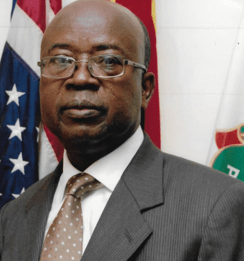By E. KINGSLEY LARBI (Rev.Prof)
Success, as the saying goes, has many fathers, and failure is often an orphan. This sentiment is vividly illustrated in Chapter 35 of Born to Win by Prof. E.K. Larbi, titled Success Has Many Fathers.
The chapter chronicles the birth and development of Central University College, a pioneering private tertiary institution in Ghana. It offers profound insights into the struggles and triumphs that accompanied the university’s establishment, highlighting the sacrifices, opposition, and eventual success that defined its journey.
This article revisits those pivotal moments, connects them with contemporary perspectives on success, and offers a broader view of the lessons embedded in the story.
Pioneering against the odds:
In 2001, the Pathfinder magazine published a landmark article titled Central University College: Genesis and Development, co-authored by Prof. E.K. Larbi and Pastor Kwasi Addo-Sampong, the then Registrar. The article, though controversial at the time, provided a candid account of the challenges that preceded the university’s founding. It revealed that within a year, a dream that many doubted had become a reality—a university that offered opportunities not only for education but also for employment and enterprise.
Despite initial opposition, including from those who would later benefit from the university, the project pressed on. By 2001, Central University had admitted hundreds of students and provided business opportunities for local entrepreneurs on campus. This was a significant achievement during a time when private tertiary education in Ghana was still a novel concept.
The cost of success:
Prof. Larbi’s account underscores a crucial truth: pioneering work is often met with resistance, misunderstanding, and misrepresentation. The university’s early days were marked by financial strain, opposition from skeptics, and infrastructural challenges. For instance, the renovation of the Sunkwa Lodge, a pivotal campus facility, faced daunting obstacles.
As documented, in 2000, a visit with Dr. Tokunboh Adeyemo, General Secretary of the Association of Evangelicals of Africa, found the lodge in a near-derelict state, with knee-deep rainwater flooding the ground floor. Yet, within a year, the building was fully renovated and functional, a testament to determination and divine providence.
Faith, vision, and results:
The growth of Central University was not just a corporate achievement but a faith-driven mission. By 2001, the university had positioned itself as Ghana’s premier private Pentecostal-Charismatic university, integrating Judeo-Christian ethics into its curriculum.
With a mission to “demystify university education” and make tertiary education more accessible, the institution offered programs that blended academic excellence with practical skills. It also introduced innovations such as worker-friendly schedules and language proficiency programs.
Historical impact and contemporary parallels:
In the early 2000s, Ghana’s tertiary education landscape was undergoing significant changes. According to data from the Ghana Tertiary Education Commission (GTEC), private universities contributed to a 15% increase in tertiary enrollment between 2000 and 2005. Central University was a major player in this growth.
Today, the legacy continues. As of 2024, private universities in Ghana account for over 25% of tertiary enrollment. Central University alone has graduated thousands of students who are impacting various sectors, including banking, technology, and public administration. Yet, the perceptions about private universities remain mixed. Some still question their quality compared to public institutions, while others recognize their role in filling critical educational gaps.
Lessons for today’s visionaries:
The story of Central University is a masterclass in persistence, timing, and faith. In contemporary times, many startups and entrepreneurs face similar hurdles—financial constraints, skepticism, and competitive markets. Yet, like Central University, those who stay true to their mission often see their critics become their customers and beneficiaries.
Additionally, Prof. Larbi’s decision to document the university’s journey in Pathfinder magazine offers a critical lesson on the power of storytelling. Accurate documentation ensures that the truth is preserved, countering forgetfulness and revisionism.
Conclusion:
Success Has Many Fathers is more than a chapter title; it is a reality that plays out in every endeavor of significance. Central University College’s story, as told by Prof. E.K. Larbi, reminds us that while success may attract many admirers in hindsight, it is born through sacrifice, faith, and resilience.
As Ghana continues to navigate its educational and entrepreneurial future, the lessons from this pioneering project remain ever-relevant: tell your story, hold fast to your vision, and trust that, in time, the fruits of your labor will speak louder than any critic.










